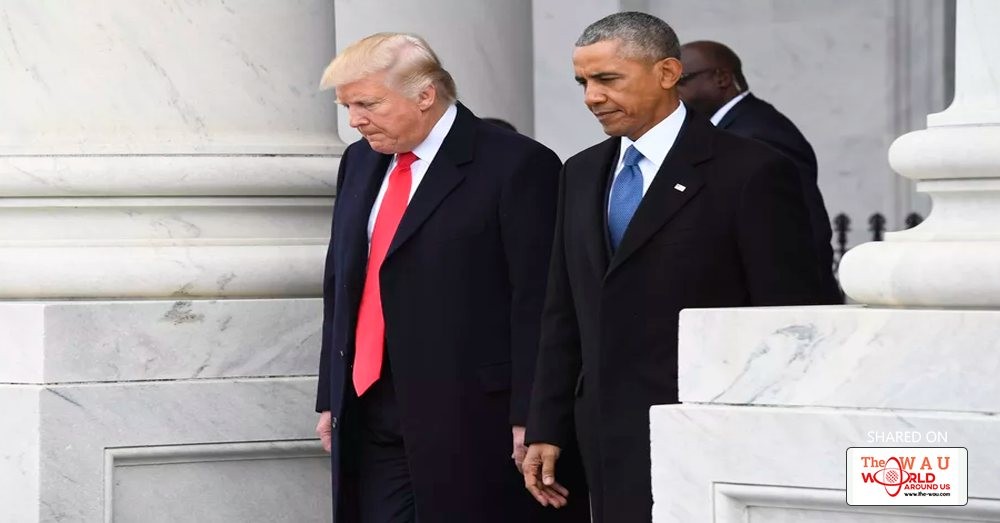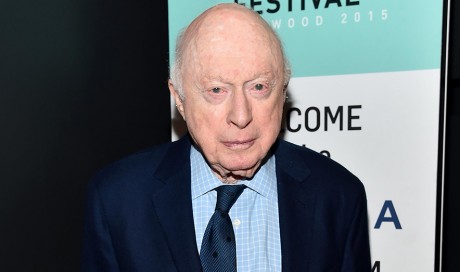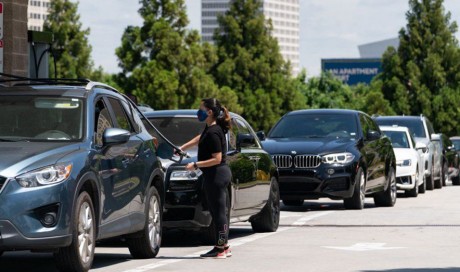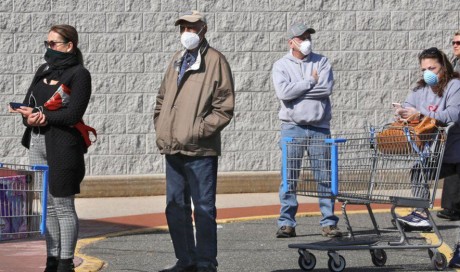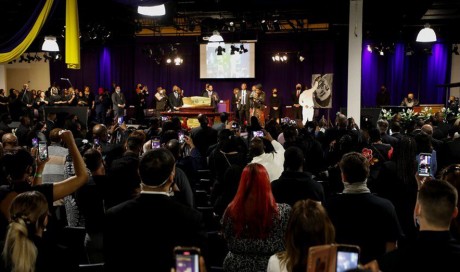Shortly after President Trump issued an executive order temporarily banning all refugees and all nationals from seven Muslim-majority countries from entering the United States, there was a curious reaction from some members of the conservative press: President Obama had the same thing. You heard it everywhere, from the august pages of National Review to the considerably less august virtual pages of Breitbart.
Even Trump endorsed this idea in a statement Sunday afternoon.
“My policy is similar to what President Obama did in 2011 when he banned visas for refugees from Iraq for six months,” he said, echoing the arguments in conservative publications almost word for word. “The seven countries named in the Executive Order are the same countries previously identified by the Obama administration as sources of terror.”
This is wrong in every particular. Obama’s Iraqi visa policy in 2011 did not ban Iraqis from entering the country. Obama’s immigration policy did not treat people with passports from the seven countries as unusually dangerous terrorism threats. And Obama’s policies never approached anything like the breadth, cynicism, and incompetence of Trump’s executive order.
But the way in which the “Obama did it first” defense has been taken up by conservatives is extremely telling. By making this issue about the liberal media smearing Trump, they are normalizing him — making this a standard left-right fight rather than something extraordinary. By providing Trump cover, these conservatives — some of whom once identified as NeverTrumpers — are aiding and abetting Trump’s assault on America’s historic status as a welcoming safe harbor for immigrants and refugees.
Obama did not ban Iraqi refugees from entering the country
/cdn0.vox-cdn.com/uploads/chorus_asset/file/7902769/102496439.jpg) An interpreter front and center during a US military operation in Iraq in 2010.
An interpreter front and center during a US military operation in Iraq in 2010.
In May 2011, two Iraqi refugees were arrested in Kentucky on suspicion of plotting a terrorist attack, the only two Iraqi refugees ever linked to a potential strike in the US. During its investigation of the attack, the FBI found something worrying: fingerprints from one of the arrested refugees, Waad Ramadan Alwan, on a roadside bomb in Iraq.
This suggested there was a very specific flaw in America’s refugee screening process: Databases of fingerprints from Iraqi militants Iraq were not well-integrated into the broader State Department–run refugee admissions process. As a result, the Obama administration initiated a new review of all roughly 57,000 Iraqis refugees who had been recently admitted into the United States.
According to congressional testimony given in September 2011 by then–Homeland Security Secretary Janet Napolitano, all of these admitted refugees were “revetted against all of the DHS databases, all of the NCTC [National Counter Terrorism Center] databases and the Department of Defense’s biometric databases.” Going forward, Napolitano explained, new Iraqi refugees who wanted to enter the United States would be subjected to the same scrutiny.
Getting all of this in place was extremely time-consuming and labor-intensive, and the rate of Iraqi refugee entry into the United States slowed dramatically for the six months it took to finish the review.
This made life hell for a lot of Iraqis who wished to flee to the United States, especially the many translators who had worked with the US military and feared that they or their families would be targeted by militants. Beginning in 2006, Congress passed specific legislation designed to make it easier for Iraqi and Afghan individuals who worked with the US military in their countries to enter the United States. Obama’s review slowed their flight to safety.
The review also had some serious implementation problems. At least 1,000 Iraqis who were affected by the review were only informed after they had bought plane tickets to America.
But — and this is the crucial bit — it was not a ban on Iraqi refugees entering the United States. Not even a little bit.
“While the flow of Iraqi refugees slowed significantly during the Obama administration’s review, refugees continued to be admitted to the United States during that time, and there was not a single month in which no Iraqis arrived here,” Jon Finer, an Obama administration official who worked on national security, writes at Foreign Policy.
Ben Rhodes, one of Obama’s top foreign policy aides, took a similar line.
“There was no ban on Iraqis in 2011,” Rhodes tweeted. “Anyone pushing that line is hiding behind a lie because they can't defend the EO.”
Finer and Rhodes’s account is backed up by two fact-checkers who looked into the issue, the Washington Post’s Glenn Kessler and FactCheck.org’s Eugene Kiely. Both concluded, in lengthy investigations that I encourage you to read, that Obama’s policy was not a six-month ban on Iraqi refugees.
Just to make this crystal clear, let’s place Obama’s policy and Trump’s policy side by side:
Obama: imposes new security checks on Iraqi refugees in response to a specific flaw in the security screening for people from that country, which slows down the admission rate of Iraqi refugees for six months but does not eliminate it.
Trump: Bans all refugees, from every country on Earth, for four months, with no evidence of a specific flaw in the refugee screening process, at a time when there are at least 60 percent more refugees worldwide than there were in 2011.
One of these policies was narrowly tailored to fixing a specific vulnerability in America’s security screening system, while the other only makes sense if you assume that every refugee — especially if they happen to come from Muslim-majority countries — is a potential threat to the United States. There’s an ocean of difference.
Obama did not say that people from the seven countries Trump targets are special terrorism risks
/cdn0.vox-cdn.com/uploads/chorus_asset/file/7902777/505389076.jpg)
What about Trump’s other claim — that the seven countries whose citizens he banned from entering America were designated by the Obama administration as “sources of terror?”
Trump is referring to an amendment to the State Department’s Visa Waiver Program, a longstanding initiative that allows people from certain countries to enter the United States without obtaining a visa first. After the San Bernardino terrorist attacks in December 2015, the Obama administration and Congress collaborated to change the way the program affected people from seven countries — Iraq, Iran, Libya, Somalia, Sudan, Syria, and Yemen.
People with passports from these countries hadn’t actually been covered in the Visa Waiver Program (the law overwhelmingly privileges Europeans). But someone who was a dual national with citizenship from a covered country — say, a French Syrian — could theoretically use her French passport to enter the US with virtually no scrutiny. The new rules removed visa waiver privileges for dual nationals, as well as people from a visa waiver country who had recently visited one of the seven nations (like a Brit who had recently traveled to Iraq).
This is, to say the least, not the same as banning everyone who has an Iraqi passport from entering the United States. It is actually applying the rules that generally apply to Syrians to a French-Syrian, rather than the rules that generally apply to French citizens — as well as subjecting someone who has recently traveled to a conflict zone to extra scrutiny.
The Obama-era rule also had a great deal of exceptions.
“To avoid punishing people who clearly had good reasons to travel to the relevant countries, the Obama administration used a waiver provided by Congress for certain travelers, including journalists, aid workers, and officials from international organizations like the United Nations,” Finer explains.
This makes an absolutely massive difference in the kinds of people who would be covered by the two different policies. Here are three hypothetical examples that illustrate the point:
- A member of the Iranian opposition — let’s call him Mehdi — flees Iran to avoid being arrested after organizing a demonstration in Tehran. Trump’s policy bans Mehdi from entering the United States, whereas Obama’s would not affect Mehdi at all.
- A teenager born and raised in Germany — let’s call her Leila — has Iranian citizenship from her mother. If she wants to travel to the US on a school trip, Obama’s policy would mean that Leila could still enter the United States, but would need to acquire a visa before doing so. Trump’s policy would bar her from entry entirely.
- A Lebanese Shia Muslim with a French mother — let’s call him Ahmed — travels to Tehran, potentially because he is a member of Hezbollah who was training with Iran’s Revolutionary Guard. Obama’s policy would subject him to heightened screening, because he recently traveled to Iran. Trump’s policy would not affect him at all, because he is a French-Lebanese national.
By focusing on dual nationals and travelers from mostly European countries, rather than nationality, Obama’s policy is targeted to a specific threat — the real phenomenon of Westerners who get radicalized and attracted to militant Islamism. This made sense, kind of obliquely, as an immediate response to San Bernardino — one of the shooters, Syed Farook, was an American citizen who had traveled to Saudi Arabia.
By that logic, focusing on those seven countries makes a certain kind of sense. Iraq, Libya, Syria, Yemen, and Somalia are all anarchic states with large jihadist presences; Westerners do travel there to join militant groups. Iran and Sudan are led by anti-American regimes that have histories of collaborating with militant groups.
What it doesn’t justify, as the examples of Mehdi and Leila prove, is barring everyone from those countries from entering the United States. Trump’s policy treats Mehdi and Leila as equivalent security risks to Ahmed, and decides to screw them all over as a result.
It says that all people from these seven Muslim-majority countries should be considered terrorists until proven otherwise. Obama’s policy did nothing of the kind.
The power of negative partisanship compels you
/cdn0.vox-cdn.com/uploads/chorus_asset/file/7902781/633117532.jpg)
That Trump would lie about the precedent for his policy is kind of unsurprising. Lying to defend the indefensible is pretty much par for the course in his administration, at least judging by its first 11 days.
More surprising, though, is that ostensibly thoughtful conservatives are providing cover for Trump’s nonsense.
“Has anything like this ever happened before? Yes, President Obama barred Iraqi refugees for six months in 2011,” Tim Carney, an opinion columnist at the Washington Times who has actually criticized Trump’s ban, wrote uncritically in a Saturday piece. There was no elaboration, no explanation of the differences in policy, no nothing — just a simple assertion that Obama’s policy was “like” Trump’s.
You’d expect, and indeed saw, this kind of treatment in the hackiest conservative publications — like the Federalist and Gateway Pundit. But folks like Carney, who style themselves as independent-minded, should be held to a higher standard.
David French, a conservative lawyer who briefly considered an independent presidential run against Trump in 2016, defended Trump’s policy against accusations that it was “a Muslim ban” — even though members of Trump’s own inner circle, like Rudy Giuliani, have said this order was the result of Trump asking for a Muslim ban that would be legally workable.
According to French, in fact, this executive order is proof that Trump is moderating.
“You can read the entire executive order from start to finish, reread it, then read it again, and you will not find a Muslim ban. It’s not there,” he wrote in a National Review piece that was widely shared on social media. “At its most draconian, it temporarily halts entry from jihadist regions. In other words, Trump’s executive order is a dramatic climb-down from his worst campaign rhetoric.”
So what’s going on? Why is so much of the conservative media, including even some who cast themselves as Trump critics, lining up to defend his “extreme vetting” as something that’s basically normal?
The most revealing article on that point, to my mind, was also published in National Review. The title? “Refugee Madness: Trump Is Wrong, But His Liberal Critics Are Crazy.” It’s a piece that, unsurprisingly, trots out the Obama 2011 policy as proof that liberals are giant hypocrites, repeating the myth that Obama banned Iraqi refugees.
The formulation of the piece’s headline suggests that while Trump’s policy may be concerning, liberals’ reaction is the real problem — and that’s exactly what’s animating the conservative attempt to defend Trump here. They’re trying to pull a “gotcha!” on liberals, to prove that they are hypocrites who don’t really care about refugees but just blindly hate Republicans.
An excellent paper, published in 2015 by political scientists Alan Abramowitz and Steven Webster, focused on something they call “negative partisanship.” By this, Abramowitz and Webster mean the notion that American partisan identity is built as much around hatred for the opposing party as it is identification with your own. They found strong evidence for the existence of “negative partisanship” in public opinion and voting data.
"Regardless of the strength of their attachment to their own party, the more voters dislike the opposing party, the greater the probability that they will vote consistently for their own party’s candidates," Abramowitz and Webster explain.
What we’re seeing in the conservative press right now is negative partisanship at work. Conservative writers may disagree with Trump’s policies, to be sure, but they dislike liberals way more than they dislike Trump. That’s how it makes sense to both criticize Trump’s policies and defend them as being normal at the same time. Some leading conservatives may not outright support Trump’s ideas, but they will defend them against liberal attacks.
This is how Trump’s most dangerous ideas get normalized. The fact that there’s an “R” next to his name, and that Democrats are criticizing him, will lead conservatives to defend him. Over time, disputes over policies that are plainly an attempt to bar members of a specific religious group from entering the United States — something Trump’s own vice president denounced as unconstitutional less than a year and a half ago — will become standard partisan disputes. Liberals say this isn’t normal; conservatives say it is. Who’s to say who’s right, in the end?
So this dispute, which might otherwise seem like a factual debate, actually has huge stakes. It’s a test of whether conservatives can move past their antipathy to liberals, and recognize the enormity of Trump’s threat to American values for what it is. It’s a test that some conservatives, like the Wall Street Journal editorial board and former Bush official Eliot Cohen, are passing. Many others have already failed.
Share This Post

